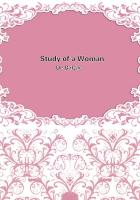'I have demonstrated to you mathematically that it is possible.'
'You have; but so are a great many other things that one does not dare to hope for.'
Someone knocked at the door, opened it, and said:
'Here's a telegram for you, Mr Reardon.'
The friends looked at each other, as if some fear had entered the minds of both. Reardon opened the despatch. It was from his wife, and ran thus:
'Willie is ill of diphtheria. Please come to us at once. I am staying with Mrs Carter, at her mother's, at Brighton.'
The full address was given.
'You hadn't heard of her going there?' said Biffen, when he had read the lines.
'No. I haven't seen Carter for several days, or perhaps he would have told me. Brighton, at this time of year? But I believe there's a fashionable "season" about now, isn't there? I suppose that would account for it.'
He spoke in a slighting tone, but showed increasing agitation.
'Of course you will go?'
'I must. Though I'm in no condition for ****** a journey.'
His friend examined him anxiously.
'Are you feverish at all this evening?'
Reardon held out a hand that the other might feel his pulse. The beat was rapid to begin with, and had been heightened since the arrival of the telegram.
'But go I must. The poor little fellow has no great place in my heart, but, when Amy sends for me, I must go. Perhaps things are at the worst.'
'When is there a train? Have you a time table?'
Biffen was despatched to the nearest shop to purchase one, and in the meanwhile Reardon packed a few necessaries in a small travelling-bag, ancient and worn, but the object of his affection because it had accompanied him on his wanderings in the South.
When Harold returned, his appearance excited Reardon's astonishment--he was white from head to foot.
'Snow?'
'It must have been falling heavily for an hour or more.'
'Can't be helped; I must go.'
The nearest station for departure was London Bridge, and the next train left at 7.20. By Reardon's watch it was now about five minutes to seven.
'I don't know whether it's possible,' he said, in confused hurry, 'but I must try. There isn't another train till ten past nine.
Come with me to the station, Biffen.'
Both were ready. They rushed from the house, and sped through the soft, steady fall of snowflakes into Upper Street. Here they were several minutes before they found a disengaged cab. Questioning the driver, they learnt what they would have known very well already but for their excitement: impossible to get to London Bridge Station in a quarter of an hour.
'Better to go on, all the same,' was Reardon's opinion. 'If the snow gets deep I shall perhaps not be able to have a cab at all.
But you had better not come; I forgot that you are as much out of sorts as I am.'
'How can you wait a couple of hours alone? In with you!'
'Diphtheria is pretty sure to be fatal to a child of that age, isn't it?' Reardon asked when they were speeding along City Road.
'I'm afraid there's much danger.'
'Why did she send?'
'What an absurd question! You seem to have got into a thoroughly morbid state of mind about her. Do be human, and put away your obstinate folly.'
'In my position you would have acted precisely as I have done. Ihave had no choice.'
'I might; but we have both of us too little practicality. The art of living is the art of compromise. We have no right to foster sensibilities, and conduct ourselves as if the world allowed of ideal relations; it leads to misery for others as well as ourselves. Genial coarseness is what it behoves men like you and me to cultivate. Your reply to your wife's last letter was preposterous. You ought to have gone to her of your own accord as soon as ever you heard she was rich; she would have thanked you for such common-sense disregard of delicacies. Let there be an end of this nonsense, I implore you!'
Reardon stared through the glass at the snow that fell thicker and thicker.
'What are we--you and I?' pursued the other. 'We have no belief in immortality; we are convinced that this life is all; we know that human happiness is the origin and end of all moral considerations. What right have we to make ourselves and others miserable for the sake of an obstinate idealism? It is our duty to make the best of circumstances. Why will you go cutting your loaf with a razor when you have a serviceable bread-knife?'
Still Reardon did not speak. The cab rolled on almost silently.
'You love your wife, and this summons she sends is proof that her thought turns to you as soon as she is in distress.'
'Perhaps she only thought it her duty to let the child's father know--'
'Perhaps--perhaps--perhaps!' cried Biffen, contemptuously. 'There goes the razor again! Take the plain, human construction of what happens. Ask yourself what the vulgar man would do, and do likewise; that's the only safe rule for you.'
They were both hoarse with too much talking, and for the last half of the drive neither spoke.
At the railway-station they ate and drank together, but with poor pretence of appetite. As long as possible they kept within the warmed rooms. Reardon was pale, and had anxious, restless eyes;he could not remain seated, though when he had walked about for a few minutes the trembling of his limbs obliged him to sink down.
It was an unutterable relief to both when the moment of the train's starting approached.
They clasped hands warmly, and exchanged a few last requests and promises.
'Forgive my plain speech, old fellow,' said Biffen. 'Go and be happy!'
Then he stood alone on the platform, watching the red light on the last carriage as the train whirled away into darkness and storm.















